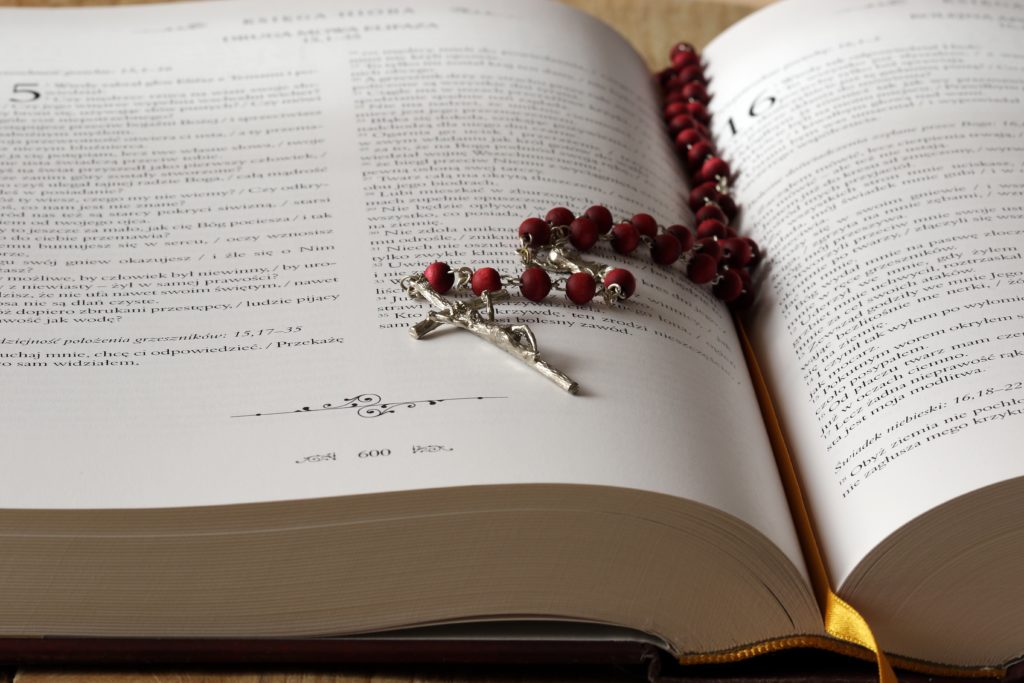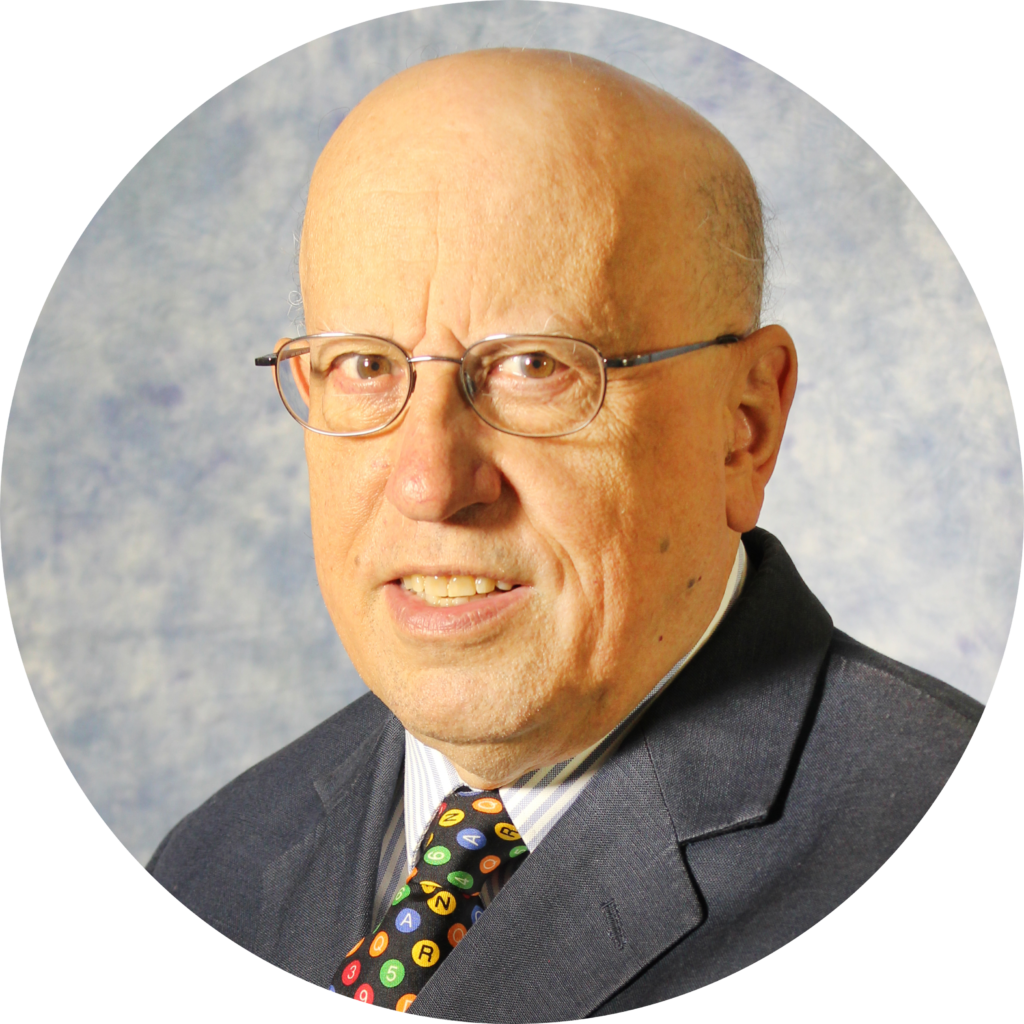
Reflections on Abortion, President Biden, Catholic Politicians, and Church Teachings Redux:
The Truth Will Set You Free
Charles J. Russo
Picture by Anna Sulencka on Pixabay.
On Monday, May 2, 2022, an unknown person or persons leaked Justice Alito’s draft opinion for Dobbs v. Mississippi Department of Health, an opinion which would overrule Roe v. Wade. Roe, as is widely known, enshrines a putative constitutional right to abortion and is largely buttressed by Planned Parenthood v Casey. Chief Justice Roberts acknowledged this egregious breach of confidentiality and ordered an investigation into how it occurred, describing the leak as “absolutely appalling.” Although the investigation has heated up, the source of the leak has yet to be uncovered, or announced, a month after it occurred.
In light of Justice Thomas’ remark that the leak changed the Court forever, this unauthorized disclosure may wreak inestimable damage to the Court’s internal working climate for years to come. The leak both breached public trust and damaged interpersonal relations among Justices and their clerks. Although Dobbs is currently only a draft, it stands to uphold Mississippi’s ban on most abortion procedures after fifteen weeks of pregnancy, returning the larger question of abortion’s legality to state legislatures and to democratic, rather than judicial, processes.
In response to the leak, President Biden evidenced three curious reactions. First, while still failing to condemn the leak, a White House statement described the opinion in Dobbs as “radical.” Second, Biden made no effort to dissuade protesters who, following through on their threat of marching on the homes of the sitting Justices who rejected Roe and Casey, violated federal statutes with impunity, attempting to intimidate the Justices into changing their opinions even as a pro-life facilities in Wisconsin and Oregon and others are attacked while vandals continue, and even increased, as it expanded to target churches. In fact, due to the protests, Justice Alito and his family have reportedly been moved to a secure location for their safety. Moreover, rather than try to tone down the emerging tensions, Biden’s press secretary said there is no official federal position on such protests.
After the President eventually condemned the protests, the Senate unanimously passed a bill to protect Supreme Court Justices and their families from such threats with the House leaders doing the same about a month later. Nine days after the leak the Attorney General Garland ordered United States Marshals to help ensure the Justices’ safety, even as pro-abortion activists threatened to burn down the Supreme Court and a kill Justices if they overturn Roe.
…This essay reflects on what role the private religious lives of politicians can or should play in their public lives, and whether religious leaders can correct their errors by asking politicians to speak truthfully about such important topics.
Further, angered by what he feared was Justice Kavanaugh’s likely support for overturning Roe, police arrested and charged a well-armed man who traveled from California to Virginia with the expressed intent of assassinating the Justice, a story that received attention from some, but not all, newspapers with national readerships. And an activist group has apparently threatened Justice Amy Barrett’s family and children. While it is understandable that emotions are running high on Dobbs and abortion, one must hope that people can learn to disagree without being personally disagreeable or resorting to violence for fear of destroying the already frayed social fabric in the United States.
Third, and most importantly, Biden, whose office describes him as a devout Catholic – a reference Archbishop Joseph Naumann, former Chair of the United States Conference of Catholic Bishops (USCCB) Committee on Pro-Life Activities, decried in light of the President’s support for abortion and other positions inconsistent with his professed beliefs – entered the fray over Dobbs and the origins of human life. Having repudiated his earlier pro-life positions, including his support for the Hyde Amendment’s ban on federal support for abortion, Biden proceeded to lump all faiths together, musing that “Roe says what all basic mainstream religions have historically concluded, that the existence of a human life and being is a question…. Is it at the moment of conception? Is it six months? Is it six weeks? Is it quickening, like Aquinas argued?”
Putting aside the theological question that various religious perspectives exist in faith traditions as to where life begins, this essay highlights that by citing Aquinas, Biden, who often touts his Catholic faith, seemingly included his Church’s teachings in his far-reaching comment. Unlike the late Catholic politician Mario Cuomo who sought to distinguish his private and public beliefs while serving in office, Biden made no attempt to differentiate the two, essentially equating his private and public positions when speaking about Dobbs. Consequently, in light of my earlier reflections on the uneasy relationship between American Catholic politicians, the bishops, and Church teachings, this essay reflects on what role the private religious lives of politicians can or should play in their public lives, and whether religious leaders can correct their errors by asking politicians to speak truthfully about such important topics.
Responding to Biden’s erroneous description of the Catholic Church’s teaching about when life begins calls to mind President Ronald Reagan’s quip that “The trouble with our liberal friends is not that they are ignorant, but that they know so much that isn’t so.” More specifically, rather than having espoused a position that isn’t so, Biden should have consulted the authority of the Catechism of the Catholic Church, the official repository of its teachings. Because the Catechism’s language unequivocally describes when life begins, it is worth quoting at length:
Human life must be respected and protected absolutely from the moment of conception. From the first moment of his existence, a human being must be recognized as having the rights of a person – among which is the inviolable right of every innocent being to life…. Since the first century the Church has affirmed the moral evil of every procured abortion. This teaching has not changed and remains unchangeable. Direct abortion, that is to say, abortion willed either as an end or a means, is gravely contrary to the moral law…. Life must be protected with the utmost care from the moment of conception: abortion and infanticide are abominable crimes…. Formal cooperation in an abortion constitutes a grave offense…. The Church attaches the canonical penalty of excommunication to this crime against human life.
Responding to the President’s observation, the USCCB hastened to note that “St. Thomas Aquinas made extensive use of Aristotle’s thought, including his theory that the rational human soul is not present in the first few weeks of pregnancy.” Along with clarifying that such faulty biological theories of the time never altered the Church’s or Aquinas’ beliefs, the NCCB pointed out that he “also rejected abortion as gravely wrong at every stage, observing that it is a sin ‘against nature’ to reject God’s gift of a new life.” While the current Chair the USCCB’s Pro-Life Activities Committee, Archbishop William Lori of Baltimore, voiced support for all pregnant women, apparently neither he nor other prelates publicly rebuked Biden’s erroneous description of Church teachings.
An assertion by Kennedy during his presidential campaign in 1960 provides an insight into the relationship between politicians and religious leaders: “I believe in an America where the separation of church and state is absolute, where no Catholic prelate would tell the president (should he be Catholic) how to act, and no Protestant minister would tell his parishioners for whom to vote…. Whatever issue may come before me as president -…. I will make my decision in accordance with … what my conscience tells me to be the national interest, and without regard to outside religious pressures or dictates.”
By bringing religion into the conversation, Biden’s misrepresentation of Catholicism’s position on where life begins arguably breached this separation of which Kennedy spoke. Biden’s words opened the door to what should be a two-way conversation as to the separation of Church and State, words not in the First Amendment. In other words, just as religious leaders cannot lawfully interfere in the work of government outside the bounds of lawful advocacy and lobbying, neither should politicians addressing matters of faith and morals be allowed to do so erroneously without impunity in ways that might influence believers and others without having religious leaders be able to offer corrections.
It is important for religious leaders to hold politicians accountable for their representations of religious teachings because their comments can impact believers’ understandings of their faiths. The question is thus whether or how religious leaders can exercise their duty to correct erroneous remarks by politicians who are members of their faith communities.
In other words, just as religious leaders cannot lawfully interfere in the work of government outside the bounds of lawful advocacy and lobbying, neither should politicians addressing matters of faith and morals be allowed to do so erroneously without impunity in ways that might influence believers and others without having religious leaders be able to offer corrections.
As reflected by the controversy over whether the American Catholic bishops should have banned pro-abortion politicians such as Biden from receiving the Eucharist, most of the prelates did not appear to have the will to engage in such a public fight. Apart from the NCCB, individual American Catholic leaders are not on record challenging his position, arguably a dereliction of duty on their part.
Fairness, though, dictates that faith leaders should be able to act in a way, perhaps privately initially, to counsel politicians who misstate Church teachings of the potential harm and potential theological scandal by confusing listeners. These politicians should discontinue doing so or face potential public sanctions short of the draconian step, at least in Biden’s Catholic Church, of excommunication.
Archbishop Salvatore Cordileone of San Francisco emphasized that his action in banning Speaker of the House Nancy Pelosi from receiving Communion in his archdiocese for her having caused scandal in light of her long-time vocal support for abortion, regardless of the leak in Dobbs, “is pastoral, not political.” The Archbishop added that in order for her to receive communion again, Pelosi must “publicly repudiate her support for abortion ‘rights’ and confess and receive absolution;” meanwhile, the number of Catholic bishops in the United States publicly supporting the Archbishop’s action continues to grow.
Enabling religious leaders to correct politicians’ errors is not aimed at limiting their free speech or ability to challenge positions in their faiths with which they disagree. Instead, suggesting that religious leaders should have the ability to rebuke politicians who inaccurately address their teachings would forward two goals.
First, asking politicians who speak on matters of faith to do so truthfully would allow the mythical wall of separation to protect religion from the state – rather than only protect the state from religion – which arguably fulfills the First Amendment’s original intent by preventing public officials from spreading mistruths.
Second, the expectation that politicians would speak accurately on matters of religion, areas likely outside of their expertise, especially in their own faith traditions, would help to stem the flow of disinformation, an issue receiving a great deal of attention recently. Either way, both sides of the debate about when life begins and the propriety of abortion should be able to live with such an honest approach because, after all, “the truth will set you free.” ♦

Charles J. Russo, M.Div., J.D., Ed.D. is the Joseph Panzer Chair of Education in the School of Education and Health Sciences (SEHS), Director of SEHS’s Ph.D. Program in Educational Leadership, and Research Professor of Law in the School of Law at the University of Dayton, OH. He is also an Adjunct Professor at Notre Dame University of Australia School of Law, Sydney Campus.
Recommended Citation
Russo, Charles J. “Reflections on Abortion, President Biden, Catholic Politicians, and Church Teachings Redux: The Truth Will Set You Free.” Canopy Forum, June 20, 2022. https://canopyforum.org/2022/06/20/reflections-on-abortion-president-biden-catholic-politicians-and-church-teachings-redux-the-truth-will-set-you-free/.

